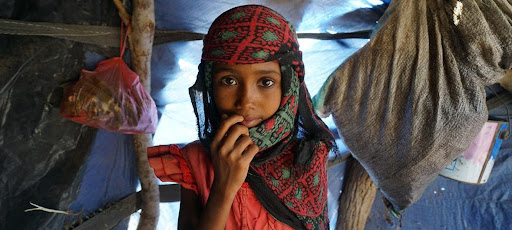While the Covid-19 global crisis has gripped the world with its impact on financial and humanitarian grounds, the African continent is battling more than just the pandemic. With African countries wrestling with each other owing to the civil unrest, natural calamities, increasing hunger rates, public threats, the crisis is beyond the coronavirus pandemic for the people of the continent.
Here are the 5 ongoing humanitarian crises the African continent is facing that are impacting the people disastrously.
- Nationalization of Vaccines
While the entire world is getting its masses vaccinated, the African continent is still facing the issue of vaccine nationalization causing it to be sold to wealthy nations and leaving a major section of the African population to be unvaccinated. When vaccines started their approval, wealthy nations like UK and Canada secured sufficient doses for their population to vaccinate its population five times over, while African countries could only secure 2% of all the vaccines available in the world.
Moreover, even in the African continent the poor and underprivileged do not have access to the doses yet, causing them to be left at the high risk of Covid-19.
2. Conflicting Ethiopia on the verge of famine
The ongoing conflict since 2020 in the Tigray region of Ethiopia has pushed the people of the nation to an official country-wide famine in June 2021. This impacted millions of lives in Ethiopia, where food security intensified and caused an outbreak of civil unrest amongst the people of the country.
According to the UN humanitarian chief Mark Lowcock, in 2011 a quarter-million Somalis lost their lives and the number of famine conditions in the African continent is higher than any other part of the world. This situation is identified to be getting worse, especially if the conflict between the people of the country and the aid agencies continues to grow at this pace.
3. Extremisn leading millions displaced in Burkina Faso
Burkina Faso has been witnessing the fastest ever displacement crisis of its people in world history. The country has been undergoing the issue for over two years which was mostly due to the Sahel region violence. The conflict that started between non-government militant groups and the armed forces has now taken the shape of brutal violence, leading to people evacuating the areas for safety and security. The situation has only worsened in the past because of the slow response of the government in recognizing the crisis.
4. Inequality and poverty in South Africa looting accelerating violence and looting
Various regions of South Africa came to a standstill last year when many cases of violence and looting were observed across the region. While the unrest was followed by protests against the former President’s arrest, it became transparent later that the conflict was more than just freeing the former President.
The act was observed to be desperation incidents where people looted the local grocery shops and fuelled violence across the country.
5. Police brutality in Eswatini
When the youth of Eswatini started a conflict by calling for a change in leadership, the nation witnessed numerous cases of police brutality across the country. The protests were fuelled by the fact that while King Mswati, Eswatini’s Monarch is a millionaire, more than half the country’s population still live below the poverty line. This has led to worsening food security in the country, and the pandemic has further caused it to dilapidate it with other issues such as sexual violence and security breaches witnessed at a massive scale across the nation.




